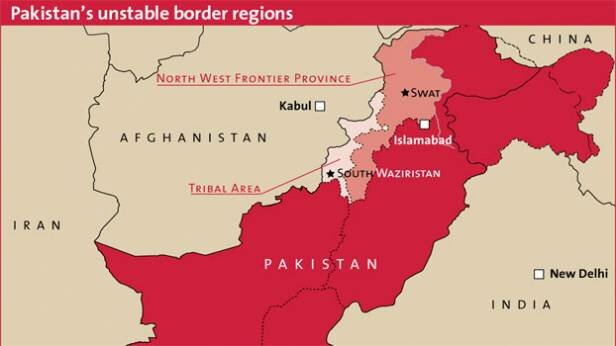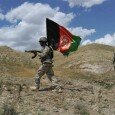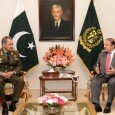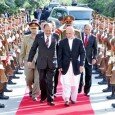By Rahimullah Yusufzai –
Our relations with our north-western neighbor are every bit as complicated as the ones with our eastern neighbor
Afghanistan and Pakistan have had a troubled relationship despite being neighbours with a shared history, religion, culture and certain races and languages. Apart from a few long-standing issues that continue to haunt the governments and people of the two countries, new ones in the post-9/11 period have been added to the list to contribute to their existing differences.
It isn’t easy for many Pakistanis to forget the fact that Afghanistan was the only country in the world to oppose Pakistan’s membership in the United Nations as an independent state in 1947. However, it is also a fact that Afghanistan gave no cause for concern to Pakistan during its three wars with India. Memorably during the 1965 war, Kabul gave an assurance to Islamabad not to worry about its western border with Afghanistan.
Afghanistan and Pakistan are Islamic republics and members of a number of international and regional organizations including IOC, SAARC and ECO. However, their relations have been troubled by issues such as the Durand Line border, Pakhtunistan, the Soviet invasion of Afghanistan, Pakistan’s support for the Afghan mujahideen and the Taliban, the ongoing conflict in the Af-Pak region involving world and regional powers and non-state actors such as al-Qaeda, Taliban and jehadi groups, the low-level insurgency in Balochistan and India’s role in Afghanistan. At times the acrimony in their relationship is subdued, but tensions resurface in the event of a major act of terror when accusing fingers are pointed at real or perceived perpetrators of such crimes.
In context of past grievances, the problem is rooted in Afghanistan’s support for Pakhtunistan, which was to be carved out from Pakistan as a state for the Pakhtun people inhabiting Pakistan’s North-West Frontier Province (NWFP), now renamed Khyber Pakhtunkhwa, and Balochistan.
The Afghan government’s opposition to newly independent Pakistan’s membership in the UN was also on account of its plea that the Pakhtuns, and also the Baloch, were not given the right to decide their future at the time of independence from British rule and the partitioning of India. Successive Afghan governments, including those led by the pro-Pakistan Afghan mujahideen and Taliban who ruled the country during the 1990s, never formally recognized the Durand Line border between the two countries.
The 2,560-kilometres long and porous border has been largely demarcated but on occasions the Afghan and Pakistani border guards have clashed due to disputes on the status of sections of Durand Line and other divisive issues. However, the occasional border skirmishes have never got out of hand to cause any major act of hostility by either country.
Though the Durand Line is a reality, Afghanistan has yet to formally recognize it as an official border. President Hamid Karzai was once quoted as saying that the border was “a line of hatred that raised a wall between the two brothers.” The Taliban also declined to endorse the border and some of their leaders used to remark that there should be no borders between Muslims. Pakistan considers the issue closed as the Durand Line has served as an international border since 1947 with proper immigration and customs controls.
No longer something topical, the Durand Line occasionally draws attention. One such occasion was former President General Pervez Musharraf’s proposal for mining and fencing the border to prevent infiltration of militants into Afghanistan. It met strong resistance not only from the Afghan government but also nationalist politicians in Pakistan and tribal people in Fata.
The Afghan people and their government even opposed installation of the biometrics system on the border to properly manage cross-border movement and the one put in place at the Chaman-Spin Boldak border in Balochistan was damaged by angry Afghans.
The Pakhtunistan issue never enjoyed any popular support among Pakistan’s Pakhtun population or even Afghans and has receded from public memory over the years. Though Afghanistan hosted nationalist Pakhtuns and Baloch and sometimes helped rebellious Pakistani tribesmen with money and arms, Pakistan’s tit-for-tat response through its support for dissident Afghans prompted Kabul to rethink its policy. Squares named Pakhtunistan still exist in Kabul and Jalalabad and a few hundred Baloch separatists and some Pakhtun tribesmen continue to enjoy Afghanistan’s hospitality, but the weak Afghan government is no longer able to use these dissidents to cause any major problem for Pakistan.
Following the post-9/11 US invasion of Afghanistan, the issue of cross-border infiltration of the Afghan Taliban and other militants from Pakistan has become a major irritant in Pak-Afghan relations. To it has been added Pakistan’s allegation that fighters and weapons from Afghanistan are entering Pakistan and destabilizing its border areas. Several hundred Pakistani Taliban fighters from Swat and other districts of Malakand division crossed over to Afghanistan’s Kunar and Nuristan provinces after their defeat at the hands of Pakistan’s security forces in 2009-2010 and are now using their Afghan sanctuaries to launch cross-border attacks in Chitral, Lower Dir and Upper Dir districts and Bajaur Agency. Pakistan is also increasingly concerned over the presence of Pakistani Baloch separatists in Afghanistan under the protection of the Afghan government.
The Afghan government, along with the US and its allies, has reasons to believe that the Afghan Taliban and their allies from the Haqqani network use sanctuaries in Pakistan’s tribal areas and Balochistan to launch attacks in Afghanistan. Many Afghans suspect that Pakistan’s support for the Taliban is part of its design to install a government of its choice in Kabul. Though this theory is now largely discredited, there are many who still believe that the Pakistani military considered Afghanistan as providing it “strategic depth” in the event of another war with India. As most al-Qaeda figures have been killed or captured in Pakistan, Kabul and its Western patrons are convinced that Islamabad isn’t doing enough to dismantle the network built by Osama bin Laden and his Arab and Pakistani followers.
There are other irritants as well in the Pak-Afghan relationship. Pakistan is concerned about the growing Indian influence in Afghanistan and has often complained about the use of Afghan soil by New Delhi to destabilize Khyber Pakhtunkhwa and Balochistan, where Islamic militants and Baloch nationalists are challenging the writ of the state. The trust deficit between Islamabad and Kabul widened when the latter signed strategic partnership agreement with New Delhi and agreed to an Indian offer to train Afghan military officers after spurning a similar proposal by Pakistan. There is no love lost between Pakistan and components of the now disbanded Northern Alliance, made up mostly of non-Pashtun Afghan warlords and politicians due to past disagreements and Islamabad’s closeness to Gulbaddin Hekmatyar and the Taliban.
The issue of the Afghan transit trade through overland routes in Pakistan continues to cause friction when containers and trucks bound for Afghanistan are held up at Karachi seaport or goods are smuggled back into Pakistan causing it revenue losses and damaging its industry. Demands by both Kabul and New Delhi that Islamabad should allow Indian goods to pass overland through Pakistan to Afghanistan is a new addition to the contentious issues concerning the Afghan transit trade. After delays prompted by differences, the new Afghan transit trade agreement has finally been implemented, but it is far from a smooth affair.
The issue of Afghan refugees in Pakistan is also long-standing. There are 1.7 million registered Afghan refugees in Pakistan while the number of non-registered Afghans is a matter of conjecture and often the figure quoted in one million. The registered refugees are supposed to repatriate to their homeland by the end of 2012 under an agreement between Afghanistan, Pakistan and the UNHCR. Islamabad wants the refugees to be repatriated but it cannot force them to leave as such a move would cause adverse reaction worldwide. Donors are no longer helping Pakistan to share the burden that the Afghan refugees are exerting on its economy.
All these irritants are the fallout of the mistrust that has characterized the relationship between Afghanistan and Pakistan. Unlike their bickering governments, the people-to-people contacts between the Afghans and Pakistanis, particularly in the border areas, are largely cordial and productive. Some statistics would help explain this relationship. Around 50,000 Afghans enter Pakistan daily mostly without any travel documents via the Torkham and Chaman border towns Pakistan’s embassy in Kabul and its consulates in Jalalabad, Herat, Mazar-i-Sharif and Kandahar issue 1,200 multiple-entry visas to Afghans every day.
It is not strictly a one-way traffic as a large number of people from Pakistan, mostly tribespoeple living in the border areas, are able to cross over to Afghanistan without visas under the easement rights and over 70,000 Pakistanis have found well-paid jobs in Afghanistan’s reconstruction projects. Pakistan is Afghanistan’s largest trading partner and the latter is the third largest export market for Pakistani goods after the US and China. Pakistan’s exports to Afghanistan increased from $26 million during Taliban rule in 2001 to $1.2 billion in 2010 and to over $2 billion in 2011. If one were to include the informal trade between the two countries, the annual figure was estimated at over $4 billion. Islamabad was losing revenue as smuggled goods worth $2.5 billion were coming back to Pakistan from Afghanistan.
Lately, Pakistan has done well to invest in the Afghan people and undertake projects for the welfare of the common man. However, it needs to take measures to befriend all Afghans instead of a particular ethnic group or militant faction. There is great potential to make progress in every field to bring Afghanistan and Pakistan closer, but the biggest hurdle now is the lack of peace and security on both sides of the Pak-Afghan border. The conflict began in Afghanistan and spilled over to Pakistan. It is in the interest of both countries to jointly make efforts to bring the conflict to an end and ensure a better future for their coming generations.
The writer is senior journalist































































































